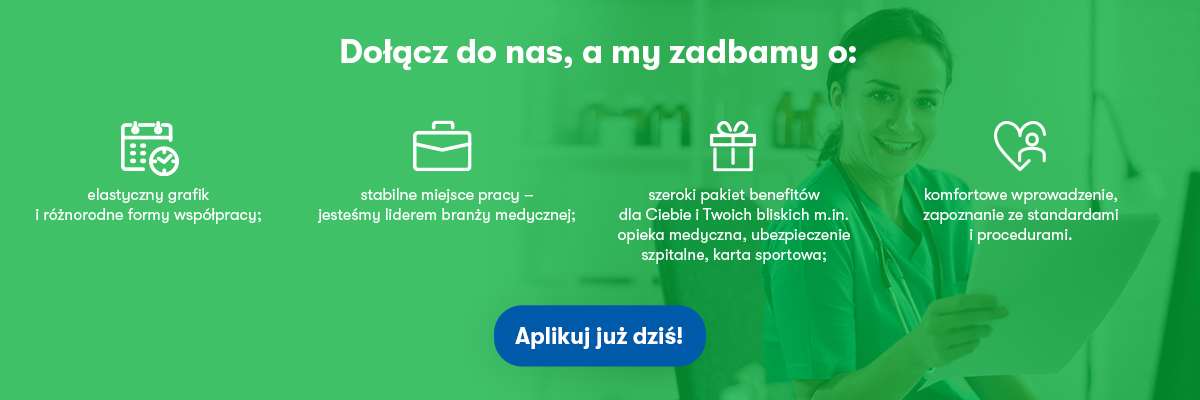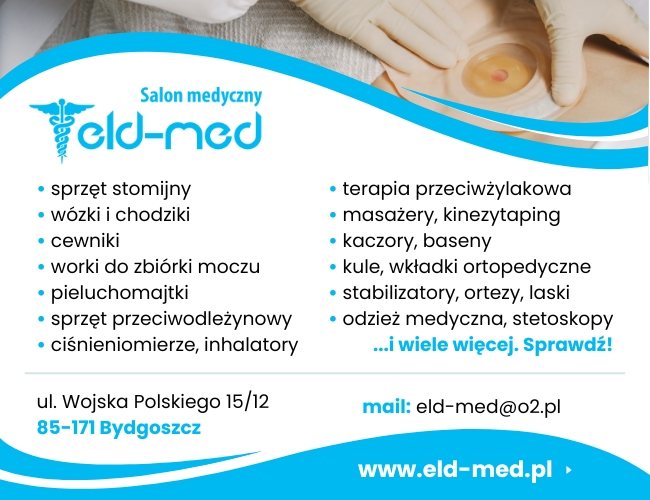…
Wielka Brytania: Kamery w domach opieki? Ukryte kamery?! Komu to służy? Wskazania rządowej komisji.
Sprzęt elektroniczny do obserwowania, kontrolowania i nagrywania jest coraz powszechniejszy także w szpitalach i innych placówek służby zdrowia. Używa go lub rozważa użycie część pracodawców, ale też niektóre rodziny pacjentów. Chcą mieć pewność, że opieka sprawowana jest na należytym poziomie. Czy jest to skuteczne rozwiązanie? I czy jest legalne? Burzliwa dyskusja trwa. Wiele pielęgniarek jest oburzonych.
Brytyjska Komisja Jakości Leczenia (Care Quality Commission – CQC) opublikowała w lutym raport pt. „Cameras in care”. Bliscy pacjentów najpierw są zachęcani do skorzystania z innych dostępnych środków, jak zgłoszenie uwag w placówce czy odpowiednim urzędzie. Należy zapoznać się też z regulaminem danej jednostki NHS. W dalszej kolejności rodziny pacjentów otrzymują jednak szereg wskazań (czy nawet: pomysłów!) co do używania kamer, podsłuchów czy rejestratorów ruchu. Dotyczy to także urządzeń ukrytych.
Dalej w dokumencie czytamy wymowne wskazania: “Sprawujący opiekę personel może widzieć w sprzęcie nagrywającym wtrącanie się w prywatność osób korzystających z usług, pracowników i osób odwiedzających oraz może uznać, że należy ten sprzęt usunąć. Jednakże oznaczałoby to przewinienie w przypadku rozmyślnego zniszczenia lub uszkodzenia sprzętu, bądź odmowy zwrócenia go. Niektórzy obawiają się, że personel może odmówić leczenia kogoś lub sprawowania odpowiedniej opieki wiedząc, że używany jest sprzęt nagrywający. Byłoby to jednak niedopuszczalne, aby ktokolwiek z personelu działał w ten sposób. A gdyby jednak do tego doszło, należy zawiadomić naszą Komisję”.
Wszelkie nagrania ukazujące nieprawidłowości należy przesłać Komisji.
Podobne wskazania skierowane są do pracodawców. Mówią o rozważeniu wszystkich za i przeciw, konsultacjach z pielęgniarkami i odpowiednich szkoleniach.
Komentarze internautów widoczne na stronie Komisji są zaś bardzo zróżnicowane. Niektóre uznają kamery za konieczność czy roztropność. Inne mówią o braku poszanowania godności pacjentów i pielęgniarek. Jeden z komentarzy brzmi: „Chcesz pojawić się w filmie dokumentalnym? Chcesz być osobistością medialną? Chcesz zyskać złą sławę? Jeśli tak, to przeczytaj wskazania komisji CQC o kamerach w domach opieki!”
Opracowanie na podstawie: Care Quality Commission.
Zobacz komentarze na facebooku
Michał Lewicki
International Relations Coordinator
Polish Nursing and Midwifery Portal
email: [email protected]
United Kingdom: Video cameras CCTV in care homes? Hidden cameras? Who is it for? Recommendations of a governmental commission.
The electronic equipment for observation, monitoring and recording is increasingly widespread, also in hospitals and other health service units. It is used, or its use is being considered, by a part of employers, but also by some patients’ families. They want to be sure that the care is at the due level. Is it an effective solution? And is it legal? A fierce debate continues. Many nurses feel indignant.
In February, the British Care Quality Commission – CQC issued a report entitled “Cameras in care”. At first, the loved ones of patients are encouraged to use other available means, such as raising their concerns with the care service or relevant authority. They should also get to know the current regulations of the NHS trust. Furthermore, the families of patients get a series of advice (or even” ideas!) on how to use cameras, sound-recording equipment, or motion sensors. This applies to hidden devices as well.
Afterwards, the document gives the following meaningful remarks: “A care service may see recording equipment as an intrusion on the privacy of people who use services, staff or visitors and may feel that they have to remove it. However, they would be committing an offence if they deliberately destroyed or damaged the equipment or refused to return it to you. Some people fear that staff may refuse to treat someone, or care for them properly, if they know that recording equipment is being used. But it would be unacceptable for any member of staff to act in this way. And, if the service did this, you should report them to us”.
If the recording shows any poor care, users of the devices shall send them to the Commission.
There are similar recommendations addressed to employers. They include considering all the pros and cons, consulting the nursing staff and providing proper trainings.
The comments of the Internet users on the Commission’s website are various. Some consider cameras as necessary thing and as a sign of prudence. Other mention a lack of respect for the dignity of patients and nurses. One of the comments says: “Do you want to appear in a TV documentary? Do you want to be a media personality? Do you want to be infamous? If the answer is yes then read the CQC guidance on CCTV in care homes”.
Sources: Care Quality Commission.
Michał Lewicki
International Relations Coordinator
Polish Nursing and Midwifery Portal
email: [email protected]
Die Großbritannien: Die Kameras in den Pflegeheimen? Die versteckte Kamera?
Die elektronisch Geräte ist immer allgemeiner zu dem Beobachten, dem Kontrollieren und dem Aufnehmen in Krankenhäusern und der ander medizinische Einrichtung.Er setzt ihn ein oder der Teil der Arbeitgeber, sondern auch manche Familien der Patienten den Gebrauch überlegen. Ist diese besser Lösung? Und ist es legal? Die stürmische Diskussion dauert. Die viele Krankenschwestern sind empört.
Die britische Kommission der Qualität der Behandlung (CQC) sie hat einen Bericht im Februar veröffentlicht u. d. T. "Cameras in care". Die Familien der Patienten sind zuerst zu alle seine Bemerkungen Vertretungen zu übermitteln ermuntert. Später bekommen sie die Unmenge der mit die Kameras zu installieren verbunden Ideen.Die Kommission glaubt, dass Familien können, aber sie müssen die Arbeitnehmer nicht über das Monitoring während ihre Arbeit informieren.
Die ähnlichen Empfehlungen richten sich zu Arbeitgebern. Sie sagen über alle zu überlegen zu und gegen, den Konsultationen mit den Krankenschwestern und den entsprechenden Schulungen.
Alle die Unregelmäßigkeiten darstellende Aufnahmen er gehört der Kommission übersenden.
Die Kommentare der Internetnutzer sichtbar abseits der Kommission sie sind negativ wie und positiv.
Auf dem Unterbau bearbeitet CQC.
Katarzyna Śmigielska
Koordinatorin für internationale Kontakte
Polnisches Portal der Krankenschwestern und Hebammen
email: [email protected]
,
Royaume-Uni: Caméras vidéo dans les maisons de retraite? Caméras cachées ? Pour qui ? Recommandations d’une commission gouvernementale.
Les équipements électroniques pour l'observation, la surveillance et l'enregistrement sont de plus en plus communs, aussi dans les hôpitaux et autres établissements de soins de la santé. Certains employeurs, mais aussi des familles de patients, utilisent ou envisagent utiliser un tel matériel. Ils veulent être sûrs que les soins sont au bon niveau. Est-ce une solution efficace ? Est-ce que c’est légal ? Le débat acharné continue. Beaucoup d'infirmières se indignent.
La commission britannique de qualité des soins (Care Quality Commission – CQC) a publié en février un rapport sous le titre « Cameras in care ». Les proches de patients sont d’abbord encouragés à utiliser d'autres moyens disponibles, tels que présenter les observations au sein de l’établissement ou dans l’autorité appropriée. Il faut aussi faire la connaissance des règlements locaux de l’unité du NHS. Ensuite, les familles des patients reçoivent une gamme d'indications (ou mêmes : idées !) à propos de l’usage de caméras vidéo, écoutes électroniques ou détecteurs de mouvements. Cela concerne aussi les équipements cachés.
En plus, le document contient les remarques significatives suivantes : « Le personnel en charge de patients peut considerer l’équipement d’enregistrement comme ingérence dqns l’intimité des personnes qui bénéficient de ces services, des employés et des visiteurs, et peut trouver l’élimination dudit équipement nécessaire. Mais cela serait une faute en cas de destruction ou l'endommagement délibérés de l'équipement, ou bien de refus d’en retourner. Certains craignent que le personnel peut refuser le traitment ou des soins, en sachant qu’un équipement d’enregistrement est utilisé. Cela serait pourtant inacceptable, si n’importe qui fonctionne de telle manière. Au cas où une telle situation arrive, il faut contacter la Commission ».
Tous les enregistrements contenant des irrégularités doivent être envoyés à la Commission.
Des indications semblables sont adressées aux employeurs. Elle contiennent l’importance de peser tous les avantages et les inconvénients, ainsi que des consultations avec les infirmières et des instructions adéquates.
Les commentaires des internautes sur le site de la Commission varient fortement. Certains d’entre eux considèrent les caméras vidéo comme la nécessité et prudence. D’autres parlent d’un manque de respect pour la dignité des patients et des infirmières. Un des commentaires dit : « Voulez-vous apparaître dans un film documentaire ? Voulez-vous devenir une personnalité des médias ? Voulez-vous obtenir une mauvaise réputation ? Si la réponse est ‘oui’, lisez donc le rapport de la commission CQC sur les caméras vidéo dans les maisons de retraite !
Sources d’informations : Care Quality Commission.
Michał Lewicki
Coordinateur des relations internationales
Portail polonais des infirmières et sages-femmes
e-mail: [email protected]











